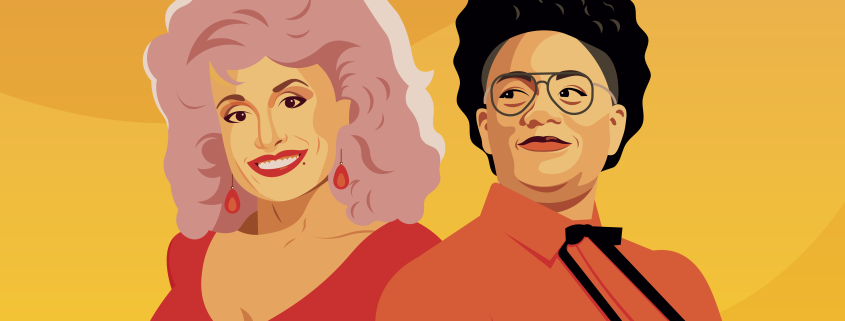I Reckon: Country music is returning to its progressive roots

Over the summer, I went to the inaugural Palomino Festival at Brookside near the Rose Bowl, and I brought nothing but my best boots, my good fringe western shirt and the chunkiest sunglasses I had. I left with more credit card debt, loads of merch and slightly frazzled, because I ran into Noah Centineo, but I didn’t think it was really him, because I thought the guy I saw was way too short to be Noah Centineo. Turns out, it really was him.
I also left feeling giddy. Giddy because Palomino was originally just a stage where new talent would perform at Stagecoach. I was also giddy because, for the price of the ticket, the lineup was completely wicked, including the likes of Orville Peck, Charley Crockett, Kacey Musgraves, Jason Isbell and Sierra Ferrell. It marks a country music revival, in a good way. After what has felt like years of pop-country that’s more or less the mainstay in country music now, there’s new blood in the genre. Their backgrounds, their unique sounds and their lyrics recall old country and western, and yet they’ve been able to mold the genre to encompass the issues and realities of today.
One new blood making waves is Tyler Childers. Prior to the release of his part-gospel, part-funky album, “Can I Take My Hounds to Heaven,” Childers wore a Charles Booker for U.S. Senate shirt to one of his shows in Kentucky. Booker is a Democrat running to unseat Rand Paul in the Senate. The reaction was instantaneous, but this wasn’t Childer’s first run-in with a country music establishment or fan base that’s taken the “shut up and sing” stance so ardently. In fact, those bold enough to break out of the apolitical box that’s been silently put up around them have always gotten slack for it.
Political moves in country music aren’t new by any means. Before Willie Nelson was stumping for Beto O’Rourke in Texas, he smoked pot on the roof of the White House with Jimmy Carter’s son, supported slews of liberal politicians and bucked LGBTQIA discrimination. Fans always threatened to boycott his shows for his beliefs, and yet he’s still headlining shows and, all things considered, is an outlaw still considered an in-law in the country music establishment. And even before Willie, there were folks with fairly progressive songs like Loretta Lynn.
The day after I pitched this piece, Lynn died. A morbid coincidence, for sure, but when the queen of old country music passes, it makes you have a bit of a come-to-Jesus moment. There are probably a ton of you out there who have never heard of Loretta Lynn, which is fair. To country music, Loretta’s death was like losing an older version of Dolly Parton. But beyond her physical self, when Loretta passed, I think country music lost a bit of its soul. With her went a lot of the fightin’ side of the genre, the side that was unapologetic, and for lack of a better word, progressive.
When Lynn released “The Pill” in 1975, a song about a new reality with birth control, the backlash from the conservative country music industry was instantaneous. It was banned on many radio stations, and to this day, “The Pill” is seldom played on the airwaves. And while Loretta Lynn is by no means a bleeding heart Democrat (quite the opposite, she was a Trump supporter), “The Pill” and other anthems like it were objectively ahead of their time. “The Pill” in particular was reportedly more impactful in informing low-income women about birth control than healthcare literature. Politically bold messages riddled country music back then, and it was hardly like any of the songs on the country music radio nowadays: none of that fake twang, chicken-fried horseshit (I’m looking at you, Zac Brown).
We’re lucky to get front-row tickets to country music returning to its roots. The country and western genre started out as an amalgamation of influences from those living in the Southeast, including enslaved Black people and European immigrants, singing high tales of the trials and tribulations of the working class, or somber retellings of heartbreak and broken families. In many ways, the songs of current, progressive country artists reflect the sound and the messages of the roots of country music more so than the country songs on repeat on the radio, and I, for one, am here for it.
Quynh Anh Nguyen is a junior writing about the implications of current Southern political events. Her column, “I Reckon,” runs every other Tuesday.

